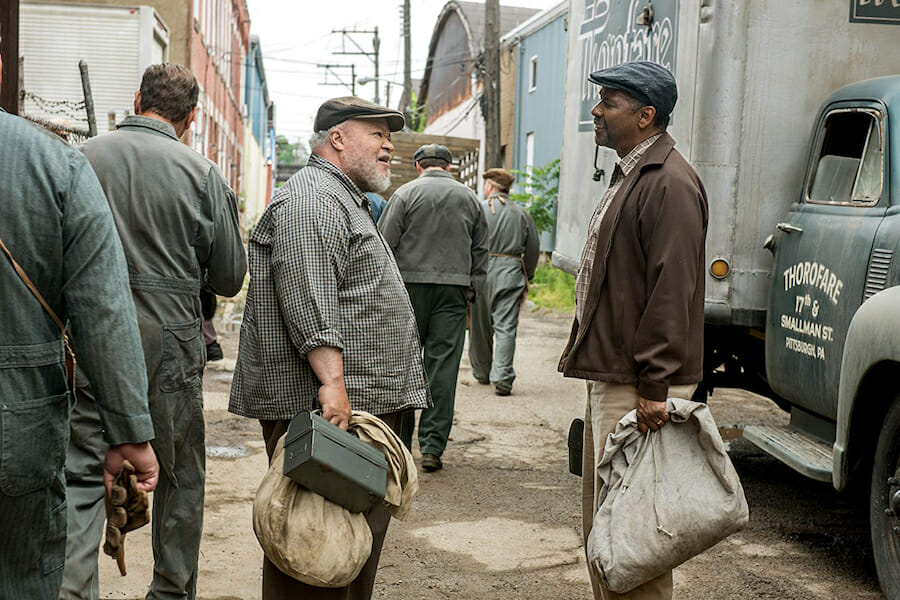
Film Review: ‘Fences’ & ’20th Century Women’
Fences and 20th Century Women are two films about longing for identity and purpose, both anchored by powerful yet troubled heads of household. Denzel Washington’s Troy Maxson and Annette Bening’s Dorothea Fields’ parent figures both seek to guide the lives of their mercurial sons, through equally impassioned yet disparate means. Troy clings to his son Cory (Jovan Adepo) through the coldness and one-man discipline expected from fathers of the 50s. Dorothea tries to mold her son Jamie (Lucas Jade Zumann) via the laissez-faire open mindedness and faith in her community that shaped hippie-era California.
The way Troy and Dorothea try to shape their sons’ lives are a reflection of their own desperation. As their sons grow more and more rebellious, the parents try to put themselves back in control. The flowering vitality of adolescents acts as a cruel contrast to the aging of their progenitors. While dealing with child rearing, Troy and Dorothea must also deal with other grown-up issues, like love, changing cultural mores, drug abuse and home improvement. The latter plays a prominent role in both films, for there is no better metaphor for a broken home than a literal broken home.
Troy and Dorothea alike must deal with changing times, those being the racial upheaval of the late 50s and the Sexual Revolution, respectively. Mr. Maxson, a former Negro League star kept out of the Big Leagues by Jim Crowe, seeks to shelter his son from the pain he felt by squashing the youngster’s dreams of playing college football. He insists upon the Booker T. Washington style of incremental improvement common before the Civil Rights era.
By contrast, in 20th Century Women, Dorothea tries to embrace permissive parenting, allowing Jamie’s interest in sex and punk rock. However, she can’t help but hesitate when hearing the abrasive music of bands like Black Flag or dinnertime discussions of menstruation. Thus, she tries to indirectly parent through her son’s best friend Julie (Elle Fanning) and the feminist artist living with them, Abbie (Greta Gerwig).
The struggles of the Maxsons and Fields to connect with each other speaks to the wider experience of cross-generational disconnect. With each passing year, parents and children age further apart. Mothers and fathers grow ever more unable to recognize their children, as they explore new cultural mores, increasingly away from parental supervision. Children likewise come to see their parents in a vastly different light, trying to reconcile their myriad similarities and differences in worldview and life experiences.
I’d highly recommend watching both of these films, preferably back-to-back, for the universality of the family problems that they depict and the existential questions that they pose to the audience. How truly can a parent know who their child is? Do children grow up more in the mold of- or in opposition- to their parents? Is there such a thing as an ideal parent or child? Everyone will be able to relate to the characters in Fences and 20th Century Women in their own way.

